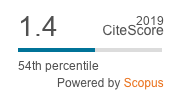Feedback and feedforward: Focal points for improving academic performance
Abstract
The effective integration of competencies in university programmes follows a holistic and diversified assessment model and the educational potential development of students’ assessment results. This work questions: how are students informed about the results of their learning? Specifically, it aims to understand students’ and professors’ perspectives about the use of learning results and the strategies that are promoted in the practice of improved use of their educational potential. The results described are derived from a case study on 12 degree graduates adapted to the EEES. Although feedback and the feedfoward are strategies for informing students about their learning results, the results of the study show that their use is not entirely generalised and frequently only inform the grades obtained. Students identify the difference between knowing the grade and obtaining feedback. The relational dimension is also valued positively when students are informed about the results of their assessment. However, it seems that use of the educational potential is pending. The students say that the tutorials and the follow up through continual assessment helps to reduce failure. Also, the faculty identifies that reflection about the results obtained is very much linked to metacognitive reflection, although it is not generalised in practice. The students recognise the limitations and the work load involved for the professor to individually monitor them. The study is concluded with the need for systematically incorporating feedback and feedforward in teaching practices and offers guidelines for orienting these strategies towards improving academic performance.
Keywords
Feedback, feedforward, academic achievement, learning outcomes.
DOI: https://doi.org/10.3926/jotse.49
This work is licensed under a Creative Commons Attribution 4.0 International License
Journal of Technology and Science Education, 2011-2024
Online ISSN: 2013-6374; Print ISSN: 2014-5349; DL: B-2000-2012
Publisher: OmniaScience







